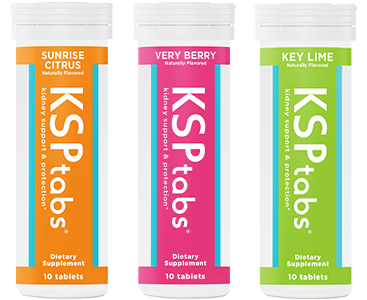
Whether you’re experiencing your first kidney stone or, unfortunately, have had a few, KSPtabs has lots of information on stones. But, first you need to understand your own situation.
Your first step is to find a urologist. Once you have a kidney stone, you have a 75% chance of having another. Seeing a urologist for annual checkups is a great start to stone protection. They’ll be able to explain your type of stones and do the necessary analysis as to why they may be forming. Below are some frequently asked questions that a urologist will try to answer.
What type of stone do I have?
There are four types of stones and each one is unique. Some are more treatable than others as well. So understanding their composition is important. Doctors will often provide patients with a urine strainer to help collect the stones so that they can send it to a lab for analysis. If you’ve had surgery to remove the stone they can also collect fragments for testing. To learn more about the different types of stones, check out the four types of kidney stones (and how to limit them).
Why am I forming stones?
A 24-hour urine test will help. It can shed some light on underlying issues by taking a holistic look at the elements in your urine as well as typical output in a day. During the test period, you’ll be given a container to collect your urine throughout a day. This will help determine your average urine output (are you hydrating enough?), your urine pH, and the amount of citrate and calcium in your system. For more on this topic, check out one of our success stories.
Do I have any other stones and what’s the plan?
If you’ve already passed your stone and there are no more, go on to the next question.
If you have a small stone, your urologist will most likely take a wait and see approach. Eventually, smaller stones will be eliminated through the bladder. Some stones will stay put in the kidney for years before deciding to make their move. It can be a painful experience as the stone travels through the ureter (kidney to bladder). Your doctor may prescribe Flomax and possibly a pain reliever to help relax the muscles and improve urination so the stone can move down its path. Depending on where the stone is located and you current level of discomfort, you’ll want to to keep these medications with you if you’re going to be traveling or not close to a medical facility.
If your stone is larger than 6mm, it has a small chance of passing and, more than likely, a lithotripsy will be scheduled—which uses shockwaves to break up the stone. Another option is ureteroscopy where an instrument is inserted through the urethra to laser the stone.
How can I prevent future stones?
While there is no concrete cure for stones, there are several things you can do to deter future ones from forming, which is primarily achieved through diet. A majority of sufferers have calcium-oxalate stones (80%). Reducing the amount of oxalates in your diet can also reduce your chances. There are a lot of foods that are good for you that are high in oxalates. So, limiting them rather than eliminating them is a healthier alternative. Click here to receive a pdf of the top oxalate foods.
Hydration is also key for all types of stones. KSPtabs will help you hydrate as well as provide the right electrolytes to combat future stones. While most stones can’t be dissolved (only uric-acid), KSPtabs can help them from becoming larger and needing surgery to remove them. That’s because KSPtabs contains key stone-fighting minerals including:
- Citrate is a potent inhibitor of urinary crystal formation. Adding additional Citrate to your diet has been shown to support a normal urinary pH and reduce calcium crystal saturation or in real-world terms, kidney stones.
- Magnesium has also demonstrated benefits in maintaining healthy urine parameters by binding to oxalate in the urine.
- B6 has demonstrated benefits in maintaining healthy urine parameters and may help lower oxalate levels in the urine. KSPtabs contains Pyridoxal-5-Phosphate Monohydrate; which is a well-absorbed form of B6, that is absorbed by the body in a more efficient manner. Having good dietary intake of B6 is very important to your overall wellness.
Passing kidney stones will be one of the more painful things you’ll endure in your life. Understanding them and making a plan for any future occurrences can help limit this. Make KSPtabs part of your stone strategy and don’t forget to stay hydrated along the way.

